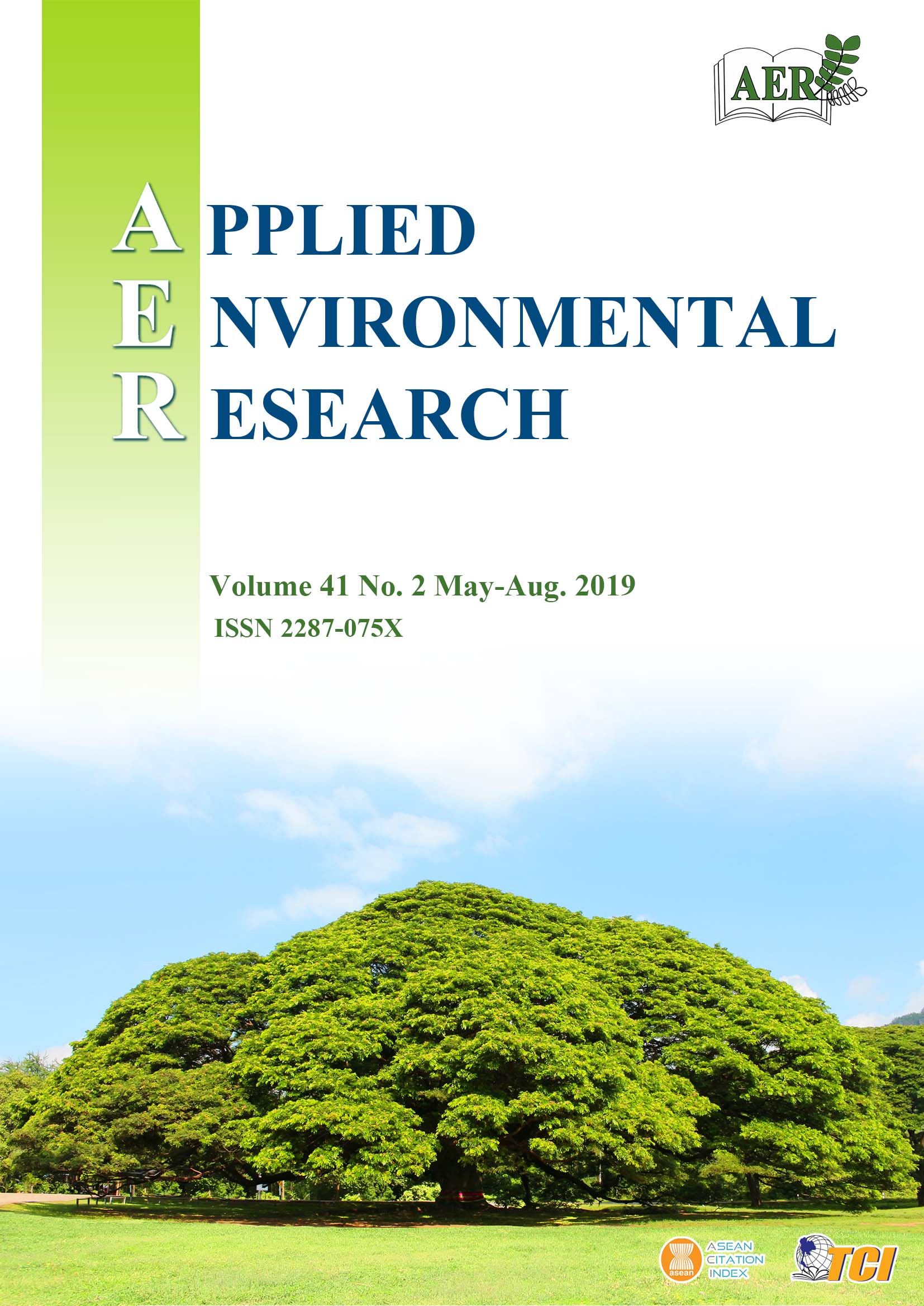Sustainable Transition Models for Municipal Solid Waste Management: A Case Study of Saraburi Provincial Administration Organization, Thailand
Main Article Content
Abstract
Municipal solid waste (MSW) generation exceeding the capacity of mechanical biological treatment (MBT) plants is a major problem for most municipalities in Thailand. The problem is serious for the Saraburi Provincial Administration Organization (SPAO) as the high daily volumes of MSW sent to the SPAO greatly exceeds the MBT plant capacity of 20 ton d-1. This results in accumulation and ultimately, open-dumping of MSW. Transition from a small (< 50 ton d-1) to a medium-sized cluster (50 - 300 ton d-1) is under consideration to address this problem. Therefore, this study evaluated pre-feasibility information, comparing two possible transition models. Model 1 proposes modification of the existing MBT plant to enlarge its capacity to 50 ton d-1, while Model 2 would require establishing a new medium-sized MBT plant (50 - 70 ton d-1). Results from field data collection as well as mass balance calculation and financial modelling indicate that without additional income from tipping or MSW management fee as well as sale of recyclable materials and scrap metals, both models exhibit negative net present value (NPV) or are not economically feasible due to high initial investment in machinery. However, sensitivity analysis based on an expected fall in future machinery prices indicates that the NPV for both models become positive if prices fall by a minimum 20 %. Due to the much higher initial investment, but the higher capacity with higher separation technology and the higher environmental benefits as well as higher ratings for sustainable development indicators, Model 2 is recommended for a long-term transition. Model 1 can still be recommended for a short - to medium-term transition. Results from in-depth interviews also confirm that Model 1, which offers additional local employment and incomes from selling recyclable materials and scrap metals would be the more feasible option owing to familiarity with the process and its lower initial investment requirement.
Article Details

This work is licensed under a Creative Commons Attribution-NonCommercial 4.0 International License.
Published articles are under the copyright of the Applied Environmental Research effective when the article is accepted for publication thus granting Applied Environmental Research all rights for the work so that both parties may be protected from the consequences of unauthorized use. Partially or totally publication of an article elsewhere is possible only after the consent from the editors.

